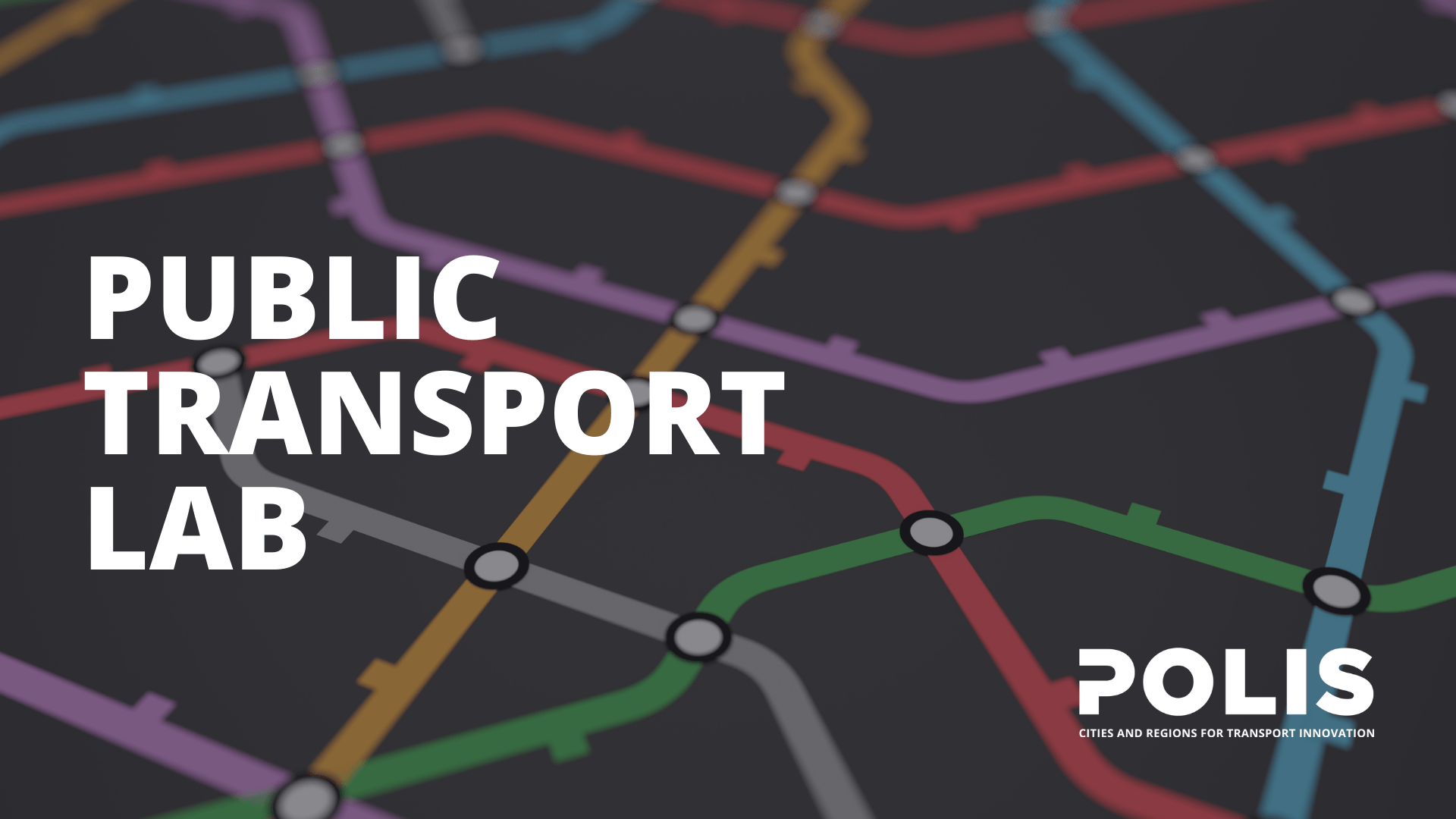POLIS' Public Transport Lab ends, but the dialogue continues
Public transport can and will play a major role in a green recovery; however, the challenges are immense. As the POLIS’ Public Transport Lab webinar series comes to a close, here is all you need to know.
This is a critical moment for public transport. Cities, regions and their operating partners are contending with the short- and long-term implications of the Covid-19 pandemic; at the same time, emissions reduction targets are looming ever closer and radical action is needed to meet Green Deal goals.
Public transit is the backbone of our urban mobility systems. However, as innovative technologies emerge, mobility patterns change and new partnerships are established, our transport networks are changing – and must change.
Success requires close collaboration, understanding what works (and what does not), the technologies and financial packages available, as well as the political landscape ahead.
In came POLIS’ Public Transport Lab webinar series.
From September to November we traversed the length and breadth of public transport, bringing together local authorities, transport operators, shared mobility actors, international policymakers (and more) to explore:
- The impacts of Covid-19 and recovery
- Automated vehicles
- Technological capacities
- The role of MaaS
- Safety and security
- Accessibility
- Funding instruments for decarbonization
- Designing integrated urbanism
- Shared mobility
The series captured the essence of modern urban transit systems and the innovative measures our cities and regions are taking to secure their success.
What did we learn?
The series uncovered the range of governance tools available, the outcomes of pioneering pilots projects and more. Here is a taster of what we found:
- There is no copy and paste solution
The size, shape and politics of each city and region creates different demands and challenges. For solutions to be truly transferable, we must hear from a range of different voices. small and medium-sized cities, regions, mega-cities… we all need to be at the table.
- Tech won’t solve our problems, but it will help!
Digital innovations are improving people’s lives and opening opportunities for public transport, including increased efficiency, lowering costs and easier accessibility. For peri-urban areas, this is proving particularly important.
- Users must be at the core
Inclusivity is at the heart of public transport. The clue is in the name, ‘public’, which by its very definition “the involvement of people in general, rather than being limited to a particular group of people”, necessitates that all needs are met. We examined how transport can be made more inclusive through attention to gender, (dis)ability, age and other specific usage needs.
- It is going to take more than tinkering around the edges
If COP26 has taught us anything, it is that the status quo is no longer an option. Our urban mobility systems do not just need to adapt, they need to transform. This requires a complete reimagining of our cities, and constructing a transport network where the car is no longer king.
- Rebuilding trust needs a gender perspective
Study after study in almost every city across the globe echo the same findings. Harassment, particularly sexual harassment, is a significant concern for women using public transport, and one of the main factors deterring their use of transit networks. If operators want to recoup dwindling profits and cities are serious about hitting modal shift targets, they need to systematically take sexual harassment seriously.
- A problems shared…
Public transport is the backbone of urban mobility, yet not necessarily the best tool for all travel demands. Shared mobility is growing in many cities, deploying shared cars, motorcycles, bikes, e-bikes, scooters and e-scooters – this opens a world of new opportunities to grow public transport’s catchment areas, and to develop more efficient offers for low-density areas and off-peak times. As long as cooperation presides.
Still want more? Check out our Thinking Cities Magazine
Many of the topics discussed have been delved into in more detail in the latest issue of Thinking Cities Magazine, POLIS’ bi-annual publication showcasing our members’ activities. Here you can read more about:
- Combatting sexual harassment on public transport, a toolkit for change
- Creating accessible mobility through the INDIMO project
- New wayfinding concepts in Madrid
- New approaches in partnering mass transit and micromobility
Please note: All recordings and presentations are available from these sessions, however some webinars were POLIS members only, and are therefore available on our members area. If you have any further questions regarding the series, please contact Isobel Duxfield.
